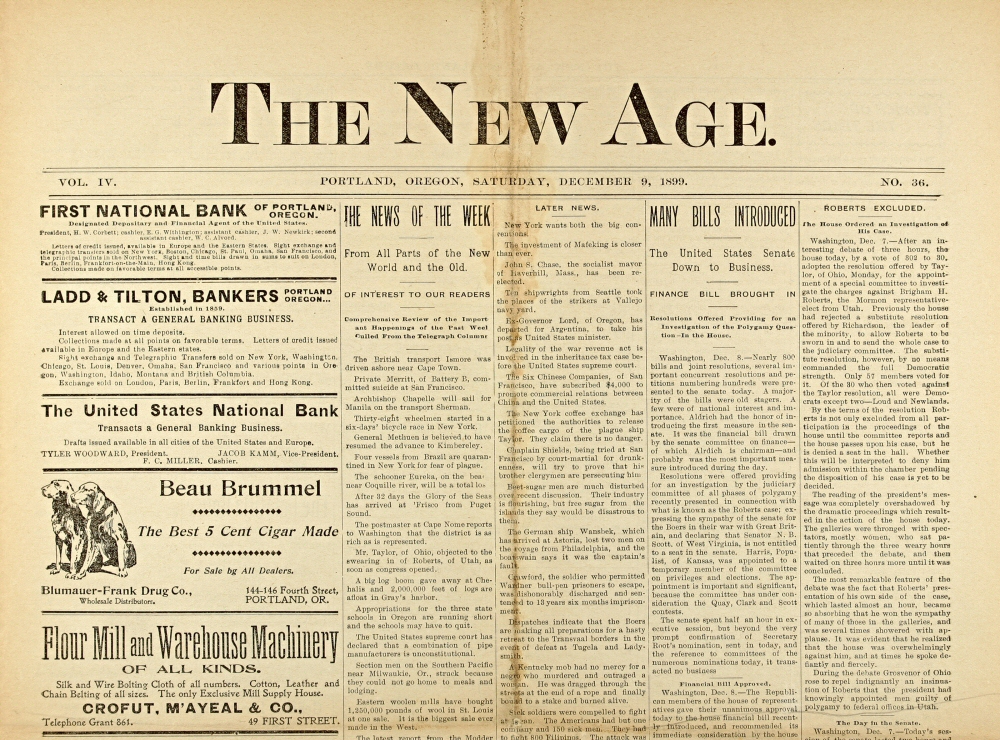
The New Age, Vol. IV. No. 36, December 9, 1899
Image Ownership: Public Domain
Between 1860 and 1900, Portland, Oregon‘s African American population increased from sixteen to 775, still small, but large enough to support two churches, a few businesses, and The New Age, a black paper established in 1896 by Adolphus D. Griffin, former editor of the Northwest Echo in Spokane, Washington. For the next decade, Griffin used the weekly newspaper to keep black Oregonians apprised of the “crucial racial issues of the day.” These included the national debate over Booker T. Washington‘s accommodationist policies, and pressing local concerns such as limited job opportunities for Portland’s new arrivals, housing discrimination, and inequities in the judicial system.
The
New Age also played an important role in creating a sense of community among the area’s scattered black residents. Regional news, contributed by correspondents in Washington and
Montana, coupled with society, church, and cultural news from Portland writers, helped readers stay in touch with friends and family. The
New Age, called “one of the strongest papers editorially of the race, as well as in appearance, form and advertising,” ceased in 1907 when Griffin left Portland. Why he abandoned his newspaper then and moved east is unclear. The journalist died suddenly of heart failure nine years later in Kansas City,
Kansas, where he edited the Kansas
Elevator.


